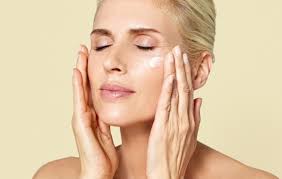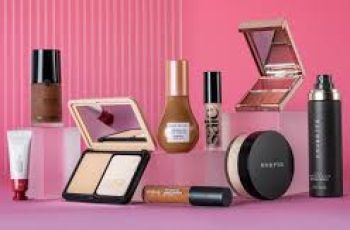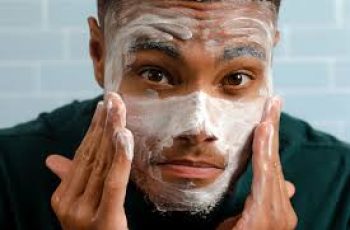
The Science of Carnosine in Skin Care Products: Benefits, Uses, and Comparison with Other Peptides
Carnosine is a naturally occurring peptide that is gaining widespread recognition in the skincare industry for its antioxidant and pigment-correcting properties.
Made from two amino acids—β-alanine and histidine—this dipeptide is naturally found in animal tissues, particularly in the muscles and brain.
Known for its potential anti-aging and skin-brightening effects, carnosine is quickly becoming a staple in various skincare products.
But how does carnosine work, and why is it so effective?
This guide will explore the science behind carnosine, its specific benefits for the skin, and how it compares to other peptides used in skincare.
We’ll also highlight which Baumann Skin Types can benefit most from using carnosine-based products.
What Is Carnosine?
Carnosine, scientifically known as β-alanyl-L-histidine, is a dipeptide made up of two amino acids: β-alanine and L-histidine.
It’s naturally synthesized in the body by an enzyme called carnosine synthase, which joins these two amino acids together.
Unlike many other peptides, carnosine is more stable in the body and is resistant to breaking down quickly, which makes it a valuable ingredient for both skincare and health products.
Where Does Carnosine Come From?
Animal Sources: The highest concentrations of carnosine are found in animal tissues, particularly in muscles and the brain.
It is most commonly derived from sources like beef, pork, chicken, and fish. A related peptide called anserine is more common in poultry and shares similar properties.
Produced in Humans: In humans, carnosine is naturally produced in tissues like muscles, the brain, and various organs.
However, carnosine levels tend to decrease with age, which may contribute to the signs of aging, such as wrinkles, loss of skin elasticity, and pigmentation changes.
Lab-Made Carnosine: Although carnosine is typically extracted from animal tissues, synthetic carnosine can also be produced in laboratories.
Recent research has shown that it can be synthesized efficiently using biocatalysts, making it a viable option for cruelty-free skincare formulations.
Carnosine’s Benefits in Skin Care
Carnosine has several unique benefits that make it a standout ingredient in skincare formulations. Here are some of the key benefits:
1. Antioxidant Properties
Carnosine is a potent antioxidant, which means it helps to neutralize free radicals—unstable molecules that can cause oxidative stress in the skin.
Free radicals are a major contributor to skin aging, leading to wrinkles, fine lines, and loss of elasticity. By fighting oxidative damage, carnosine helps protect the skin from premature aging.
Moreover, carnosine can bind to metal ions, enhancing its ability to combat oxidative stress.
This makes it even more effective in skincare products designed to fight environmental damage from pollution, UV exposure, and other harmful stressors.
2. Pigment-Correcting Properties
Carnosine is also known for its ability to reduce hyperpigmentation.
Research suggests that it can help reduce the production of melanin by inhibiting the enzyme tyrosinase, which is responsible for melanin formation.
As a result, carnosine can be effective in reducing dark spots, age spots, and uneven skin tone.
By blocking melanin production, carnosine may help to brighten the skin and create a more even complexion.
This makes it a valuable ingredient for anyone looking to improve the appearance of pigmentation issues, whether from sun damage, acne scarring, or hormonal changes.
3. Anti-Glycation Effects
Glycation is a process in which sugars attach to proteins, creating advanced glycation end-products (AGEs) that accelerate the aging process.
Collagen and elastin, two critical proteins for skin firmness and elasticity, are particularly vulnerable to glycation.
Over time, the accumulation of AGEs can lead to wrinkles, loss of firmness, and skin sagging.
Carnosine has been shown to inhibit glycation, helping to protect collagen and elastin from damage.
By preventing AGEs from forming, carnosine helps keep the skin firm and elastic, reducing the visible signs of aging.
4. Anti-Inflammatory Properties
Chronic inflammation is a major factor in skin aging, and carnosine’s ability to reduce oxidative stress also helps to minimize inflammation.
By calming irritation, redness, and swelling, carnosine can be especially beneficial for individuals with sensitive skin or conditions like rosacea and eczema.
Carnosine vs. Other Peptides
Peptides are often referred to as the building blocks of the skin. They play a crucial role in cellular repair, collagen production, and skin regeneration.
But how does carnosine compare to other popular peptides in skincare?
1. Defensins
Defensins are peptides that primarily focus on protecting the skin from bacteria and microbes.
Unlike carnosine, which combats oxidative stress and glycation, defensins help to boost the skin’s immune defense, making them ideal for products that protect against infections or environmental pollutants.
2. Signal Peptides
Signal peptides are known for their ability to stimulate collagen production and promote wound healing.
They help trigger a response in the skin to repair itself, making them effective in anti-aging formulations.
While carnosine can protect collagen from damage, it does not directly stimulate its production like signal peptides do.
3. Matrikines
Matrikines are small protein fragments that specifically stimulate the production of collagen and elastin.
These peptides help improve the skin’s support structure and are often used in products targeting skin firmness.
Like carnosine, matrikines also have anti-aging effects, but carnosine focuses more on preventing oxidative stress and glycation rather than stimulating collagen production.
4. TriHex Peptides
TriHex peptides are a blend of peptides that focus on repairing the skin’s support structure, improving collagen production, and promoting skin regeneration.
These peptides work well alongside antioxidants like carnosine, but their primary goal is to promote healing and skin rejuvenation.
Carnosine for Anti-Aging
Carnosine’s ability to fight oxidative stress and glycation makes it a valuable anti-aging ingredient.
By neutralizing free radicals and preventing AGEs from forming, carnosine helps protect collagen and elastin, two proteins that maintain the skin’s firmness and elasticity.
However, carnosine alone may not be sufficient to address all signs of aging.
It works best when combined with other ingredients, such as retinoids, exfoliants, and SPF, for comprehensive anti-aging benefits.
Carnosine for Hyperpigmentation
Carnosine’s pigment-correcting properties make it a great option for those struggling with hyperpigmentation.
By reducing melanin production, carnosine can help fade dark spots, age spots, and uneven skin tone.
The exact mechanism behind carnosine’s effect on pigmentation is still under research, but early studies show promising results.
Which Baumann Skin Types Can Benefit from Carnosine?
Carnosine can be beneficial for various Baumann Skin Types, particularly those with pigmentation and wrinkle concerns. Here are some skin types that can benefit from carnosine:
Oily Resistant Pigmented Wrinkled (ORPW): For individuals with both pigmentation issues and fine lines, carnosine helps reduce dark spots and wrinkles, making it ideal for this skin type.
Dry Sensitive Pigmented Wrinkled (DSPW): Carnosine’s anti-inflammatory and antioxidant properties make it perfect for sensitive skin, while also tackling pigmentation and wrinkles.
If you’re unsure which Baumann Skin Type you have, consider taking a Skin Type Quiz to find the best products for your skin’s unique needs.
Carnosine Side Effects
Carnosine is generally considered safe for both topical and oral use. However, some individuals may experience mild irritation or an allergic reaction.
To avoid any adverse effects, it’s recommended to perform a patch test before using carnosine-based products on your entire face.
It is not considered comedogenic, meaning it will not clog pores, making it safe for acne-prone skin.
Conclusion
Carnosine is an impressive dipeptide with strong antioxidant, anti-glycation, and pigment-correcting properties.
While it’s not the most powerful anti-aging ingredient on its own, it works synergistically with other peptides and antioxidants to provide comprehensive skincare benefits.
As more research uncovers its potential, carnosine will continue to play an important role in the anti-aging and pigmentation-correcting skincare landscape.
For those looking to target wrinkles, dark spots, and uneven skin tone, carnosine-based products are a great addition to any skincare routine.
Always consider your individual Baumann Skin Type to ensure the best results, and explore products that combine carnosine with other effective ingredients to achieve healthier, youthful skin.


